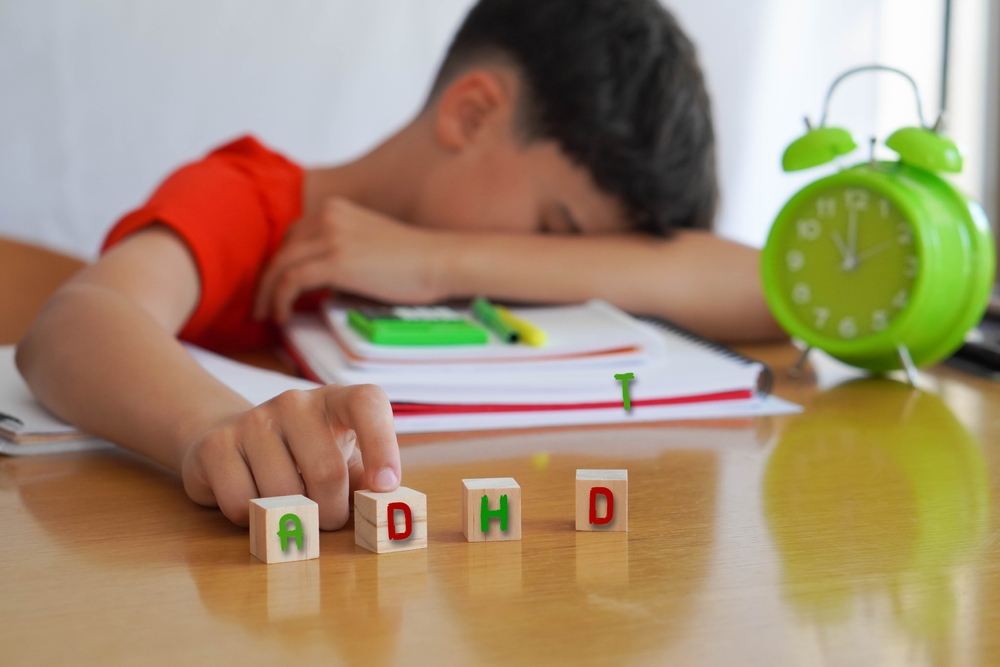If you have been asking yourself ‘do I have ADHD or am I just lazy?’, then you are not alone. Unfortunately, this is a very common thought pattern, and it can be difficult to distinguish when you don’t have an official ADHD diagnosis. However, here at the Brain Workshop, we are here to help, and we will explore this topic today.
If you would like to find out more about ADHD, we have covered topics like if people with ADHD need more sleep, 10 secrets to studying with ADHD, and how adults can manage ADHD in the workplace. We’ve also looked at how parents can create an ADHD-friendly home environment and how schools can better support students.
Understanding ADHD
There are plenty of successful people with ADHD, including Michael Phelps, Adam Levine, Simone Biles, Margot Robbie, and many more. So, if you ever thought that having ADHD means that you wouldn’t be able to achieve what you want in life, you would be wrong.
When it comes to ADHD, there are two single types to be aware of – inattentive and hyperactive. However, these can also exist alongside each other to form the combined type of ADHD.
ADHD is measured with three severity levels – mild, moderate, and severe. Here’s a quick breakdown:
- Mild – minimal ADHD-related impairment, and there are few other symptoms present besides those required to meet the ADHD diagnostic criteria.
- Moderate – there is more notable ADHD-related impairment, and there are a number of more dominant symptoms
- Severe – there is severe ADHD-related impairment, and it heavily impacts your life (school, work, etc), and there are either a lot of symptoms present, or some of them are very severe.
Symptoms of ADHD
To help you understand what ADHD might look like, we will go through some common indicators to look out for. However, it’s important to remember that ADHD is complicated, and symptoms can manifest differently in different people. As with many disorders, women and girls are less likely to show many of the classic behaviours due to copying those around them. This means that ADHD is underdiagnosed in half the population.
Some common symptoms that you might see in someone with ADHD include the following:
- Acting without first thinking about it
- Appears to not listen when directly spoken to
- Consistently interrupting conversations
- Always feeling restless
- Forgets about daily activities
- Easily distracted by their surroundings and stimuli
- Frequently loses important things (e.g. phone, car keys, etc)
- Shorter attention span
There are all kinds of myths about ADHD, but you can never downplay the importance of nutrition and brain development, no matter who you are. For ADHD people, however, there are some foods and drinks that you might want to avoid. Are you wondering if coffee or caffeinated drinks are among them?
The Relationship Between ADHD and ‘Laziness’

ADHD is a complicated disorder, which means that understanding it fully is remarkably difficult. However, with everything we know so far, we can deduce that people with ADHD have lower norepinephrine, serotonin, and GABA levels, as well as a dopamine deficiency. These can all be caused by the body not being able to process these chemicals correctly, too few particular neurotransmitters, or an insufficient number of receptors to receive the chemicals.
When there are lower levels of these chemicals, the result can be similar to that of laziness: easily distracted, self-starting difficulties, and low motivation. Break these down, and what does it sound like? Laziness.
However, these behaviours are not a choice – they are a result of brain function and chemicals. In other words, these symptoms of laziness are not actually laziness.
Executive Dysfunction
Many people with ADHD (and up to 80% of people with autism) have executive dysfunction. This is where your brain’s ability to control its behaviour, emotions, and thoughts are disrupted. Executive dysfunction can make everyday tasks incredibly difficult, and can look like you are being lazy, even though you have no control over this aspect of your life.
Symptoms of executive dysfunction include:
- Struggling to move onto another task
- Difficulty putting your thought processes into words
- Not thinking before you talk
- Impulse control issues
- Spacing out or daydreaming when you need to pay attention
- Difficulty motivating yourself to begin a task you find uninteresting or difficult
- Focusing too much on one task
- Easily distracted and difficulty focusing on one thing
Do I Have ADHD or Am I Just Lazy?
So, do I have ADHD or am I just lazy? There is no one answer because it does depend. With that being said, if you suspect that you have ADHD, then there is a good chance that you do have it, and your ‘laziness’ is due to the reasons we mentioned above.
Without a diagnosis, it’s easy to go in circles and question yourself.
If it Was Laziness, You Would Be Enjoying It
A common phrase you might hear is ‘if it was really laziness, you would be enjoying it’, and there is a lot of truth to this. More often than not, someone with ADHD who is experiencing the symptoms of laziness is not enjoying it. In fact, their symptoms can be incredibly frustrating for them, and their mental health can deteriorate as a result.
If they were truly ‘lazy’, there would be little to no guilt when they don’t have motivation or are easily distracted. If you feel guilt and frustration, then you are not showing ‘lazy’ behaviours by choice.
Dealing With ‘Lazy’ Symptoms isn’t Always Easy
So, if you think you might have ADHD and are worried that you are simply lazy, there are a number of things that you can try. ADHD is different for everyone, and every person will respond to different things, However, we have a good basis for you to get started on, and you can see if you are able to combat these feelings of laziness.
Below are a few different methods that you can try out to help combat your feelings of ‘laziness’ – but remember that ADHD is a complicated disorder, and there is no one size fits all when you experience these kinds of issues:
- Try meditation – this can help to improve executive function and improve focus, emotional regulation, and reduce stress
- Exercise every day – exercise will boat mood and health for everyone, but it can be particularly effective in people with ADHD to get rid of some of that energy
- Write everything down – if you are forgetful, make a conscious effort to write everything down on sticky notes or in a journal
- Create short-term goals – break everything down into bite size steps that are easier to achieve, and things will be less overwhelming for you
- Delegate tasks if appropriate – if this is appropriate, you can get help from other people around you. For example, if chores need to be done around the house, delegate tasks to everyone to make it more manageable
- Give external motivation a try – give yourself a pat on the back (an ice cream or another type of treat) for completing a task to motivate yourself
- Get support from other people – You can also use a body double to help keep yourself accountable when you are struggling (if you have a partner, this works out perfectly)
- Make use of organisation tools – organisation tools like Habitica can help you focus and manage tasks that you need to remember
- Set reminders for important tasks – use the calendar on your phone, or a printed calendar, to set reminders for important dates, tasks, events, and so on, so it’s impossible to forget
Get in Touch With the Brain Workshop

At the Brain Workshop, we can assess if you have ADHD and help you with our effective programs. With so many success stories, we are here to help you every step of the way.
So, do I have ADHD or am I just lazy? This can be difficult to determine, but we encourage you to seek a diagnosis if you do suspect that you have ADHD.
Want to read more? We’ve talked about brain rot and its connection to ADHD and if Elon Musk has ADHD, so there is plenty for you to learn about if you are curious. If there’s something you want to get in touch with us about, we would love to hear from you.






